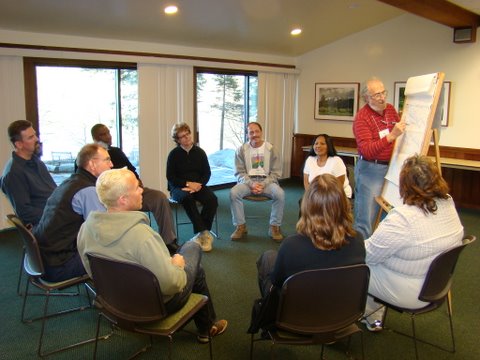Modern SMART Recovery treatment supplanting AA 12-step
Prohibition ended in 1933, at least for alcohol. Now we have the War on Drugs which was started by Richard Nixon in 1971 as a response to high rates of heroin addiction among soldiers in Vietnam. During the 1980s, the war on drugs was more apparent as an effort to stop crack cocaine. From Prohibition to the war on drugs, 12-step programs like Alcoholics/Narcotics Anonymous seem to dominate discussions. However, their reliability is under question and alternatives like SMART Recovery are gaining recognition and credibility as treatment for addiction.
Even during Vietnam, the racial bias of punishments for crack use versus those for powder cocaine use were apparent. Today, the focus is more obviously on marijuana where one of the strong arguments in favor of decriminalization (ending prohibition) is the enforcement and sentencing that so disproportionately punishes non-whites. Whatever the racial factors, the Drug Policy Alliance provides a laundry list of damning drug enforcement statistics in the US and other affected nations. Nobel-Prize winning economists called the war on drugs a “billion-dollar failure.” Philanthropist Richard Branson of Virgin Group called it a trillion dollar failure. Robert Bridge of RT shows out drug enforcement and sentencing has led to the riots in Ferguson, MO.
Rather than a ‘war on drugs’ or any punishment-based system, many focus on treatment as a solution to drug problems. The assumption is not that someone decided to be addicted and wants to continue the bad behavior arising from addiction, but that they wish to be made healthy. Alcoholics Anonymous (AA) was started following the repeal of prohibition. AA, NA (Narcotics Anonymous) and other “12-step” programs teach that addiction to alcohol or other drugs (and even some behaviors like sex or gambling) is incurable and the best treatment is to subordinate oneself to God. The founders and most AA groups mean the Christian God but many AA groups provide for an ‘agnostic’ view where any higher power, like the AA group itself, will do.
AA is the gold standard, used in involuntary sentencing in both military and civilian courts. But many consider AA to be entirely unsupported by evidence. There are many anecdotal reports of those sober for decades, but searching for success rates can be frustrating or disappointing. AA is a wonderful example of the skeptical maxim, “the plural of anecdote is not data“. Chad Emrich of University of Denver spent 10 years trying to find out and concluded that “AA helps those that it helps.” Hopefully this does not diminish the hard work and dedication of those individuals who have managed their addiction through 12-step programs. And AA is admittedly based on the work of two laypersons who were themselves alcoholics.
Challenges from the scientific community seeking theoretical basis, clinical trials, and peer-reviewed results have been rebuffed by legions of supporters of the program (The Program) and, arguably, laziness of medical and judicial agencies who are simply more familiar with AA/NA and 12-step programs. Organizations like SMART Recovery have expanded worldwide. There are over 1300 SMART Recovery meetings weekly worldwide, far outnumbering any other secular program, according to Founder Joe Gerstein. He continued to report that tere are SMART Recovery programs at 12 VA hospitals with more on the way and 150 facilitators are trained every month. SMART prides itself of scientific review and corroboration (NIDA funded research). Gerstein also supports the Cognitive-Behavioral Program for Addiction Treatment used with nearly 500 prison re-entry programs. These examples provide expansion beyond 12-step recovery programs and may have examples for the military as well.
“SMART is adamant in insisting that ethically, everyone with an addiction should be given options in treatment approach rather than be mandated to or offered only one type of recovery option. This makes sense ethically, clinically and constitutionally,” Gerstein said.
There will be a Presidential Proclamation issued congratulating SMART Recovery [Self-Management And Recovery Training] on its accomplishments in the field of Addiction Recovery over the past 20 years. The Proclamation will be delivered at the 20th Anniversary Conference of the SMART Recovery Self-Help Network on September 26, 2014 in the Headquarters of the National Geographic Society, Washington, DC. While AA and 12-step plans still seem to be the overwhelming choice in many sectors, scientifically-supported programs like SMART Recovery are gaining ground. That will improve the lives of those struggling with addiction and those who have made bad decisions under the influence of drugs.

